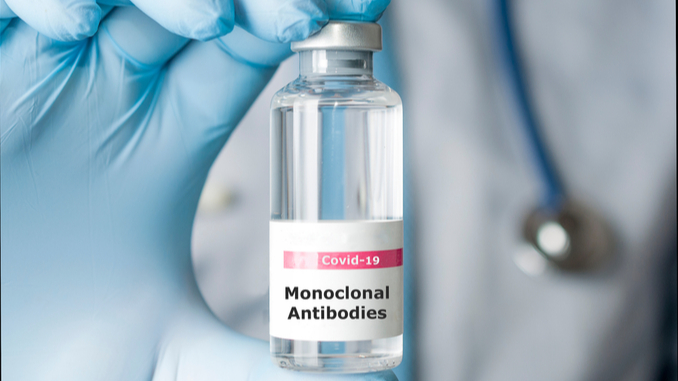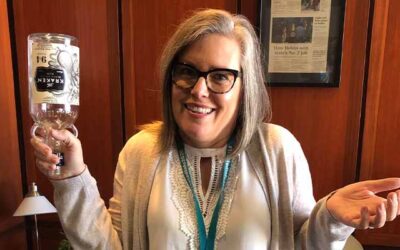By Corinne Murdock |
As the government continues to struggle retaining a totalitarian grasp on all things related to the pandemic, including Americans’ health care options, Arizonans should be aware that their skin color will determine their ability to access life-saving treatment. One Phoenix man shared with AZ Free News how his decision to identify himself as “white” because of his skin tone, rather than Hispanic, nearly cost him his life, in the hopes that his experience will spread awareness and serve as a cautionary tale to fellow Arizonans.
Michael Myers explained that he made the mistake of marking his race as “white” on medical intake paperwork rather than “Hispanic” — in part due to his complexion, mixed with the fact that he was raised to not think of himself as Hispanic.
“Had I put that I was Hispanic they probably would’ve gave [the monoclonal antibodies] to me,” said Myers. “I lost four days [of treatment] getting sicker and sicker. I put down ‘white’ even though I was sicker than a dog.”
Even though race doesn’t weigh heavily on Myers’ mind, it does for the government. AZ Free News inquired with the health system that treated Myers, HonorHealth, about their adherence to any federal or state guidelines that limit or prohibit COVID-19 treatments based on high-risk categories that factor race or ethnicity. They explained that they “follow CDC guidelines when it comes to COVID-19 treatments.” The CDC cites the FDA as the reference for guidelines on treatments for individuals with “high risk of disease progression.”
In supplemental information on their emergency use authorization (EUA) of monoclonal antibodies, the FDA acknowledged that race and ethnicity “may also place individual patients at high risk for progression to severe COVID-19,” therefore rendering them valid determinations of eligibility for monoclonal antibody treatments. That’s a conclusion that the state of Minnesota drew explicitly in their “Ethical Framework for Allocation of Monoclonal Antibodies during the COVID-19 Pandemic” published last month.
Last summer, the Department of Health and Human Services (DHHS) lauded Michigan and Maryland for incorporating equity in their decisions to administer monoclonal antibody treatments.
Also last month, the CDC published a report suggesting that “equitable” use of treatments factoring race was critical in combating the disproportionate numbers of certain races being adversely affected by COVID-19. The CDC also has a page which argues for equitable approaches to health care because COVID-19 impacts minorities disproportionately.
Equity looked like health care providers ignoring the entirety of Myers’ condition and focusing on one characteristic: his reported race.
Myers was diagnosed with COVID-19 exactly two weeks before Christmas Day. Based on Myers’ condition, his health care providers at HonorHealth gave him the option to either receive monoclonal antibodies at their FastPace emergency room nearby or wait for their Scottsdale infusion center’s next available appointment. Myers told AZ Free News that he was so sick that he opted for the emergency room.
After waiting over two and a half hours, Myers was admitted to a room. Just as the IV was placed in Myers’ arm, a pharmacist intervened. The pharmacist informed Myers that he “didn’t qualify” for the monoclonal antibody treatment because he wasn’t “high-risk” enough. Confused and upset, Myers left.
He said he was shocked when, on Monday morning, HonorHealth called him for his appointment to receive monoclonal antibodies. When Myers informed the nurse that he’d been disqualified by their FastPace center, the nurse was dismayed and insisted that he receive the treatment based on his deteriorating condition. By that point, Myers had begun to cough up blood. The infusion center’s earliest available appointment was on Wednesday; Myers said he barely made the drive from Glendale to Scottsdale safely because his coughing had worsened and he nearly didn’t have the strength to steer the wheel.
“Within 24 hours I felt I was getting better. It took me a week and a half to get back to some normal,” said Myers.
Weeks later, Myers told AZ Free News that he received a $1,500 bill from FastPace — even though they refused to treat him. Myers said his entire ordeal was entirely unnecessary, relaying frustrations at how he believed politics got in the way of his health care.
“It’s political b******t really. I got sicker when I could’ve recovered faster, and it cost me thousands of dollars in medical bills and me being off of work,” said Myers.
Corinne Murdock is a reporter for AZ Free News. Follow her latest on Twitter, or email tips to corinne@azfreenews.com.








